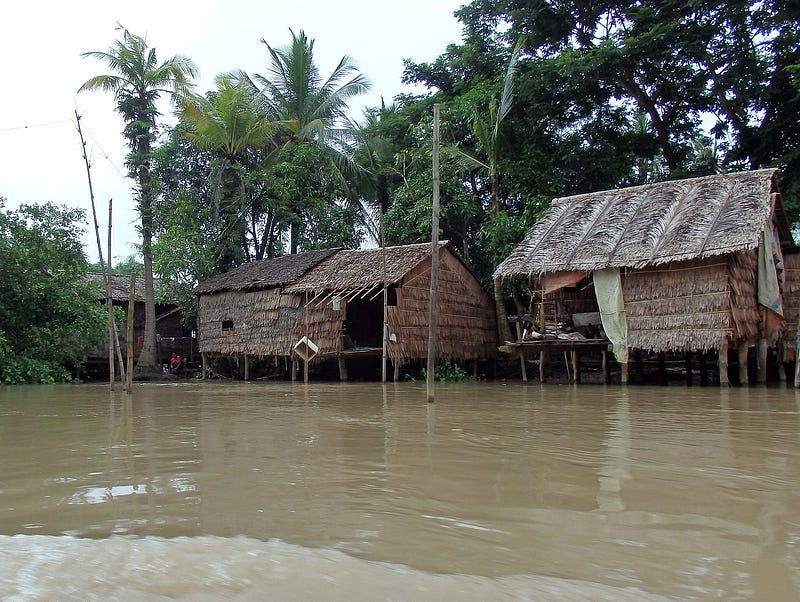
In an effort to connect with current events off the Hill — locally, domestically, and abroad —
The Spectator
will periodically publish a news recap that seeks to inform the Hamilton community on the basics of contemporary issues.
White House Counsel Departure
On Wednesday, Aug. 29, President Donald Trump announced that White House counsel Don McGahn would be leaving his position in the Trump administration this fall. Trump tweeted that this departure will take place “shortly after the confirmation (hopefully) of Judge Brett Kavanaugh to the United States Supreme Court.”
McGahn was reported to have cooperated extensively with special counsel Robert Mueller’s investigation into Russian interference and potential collusion with Trump’s presidential campaign. McGahn and President Trump allegedly clashed over the latter’s numerous attempts to obstruct special counsel Mueller’s investigation into the collusion.
McGahn’s departure, however, seems to be amicable and was already in the works before his cooperation with Mueller’s team was revealed. Earlier in August, sources close to the White House reported McGahn was likely to leave his White House post after Kavanaugh’s confirmation. Trump tweeted that “I have worked with Don for a long time and truly appreciate his service!” CNN has reported that attorney Emmet Flood, who works in the office of the White House Counsel and directs the Russia legal strategy, is a contender to replace McGahn.
North Korea Warning Letter
Senior Trump administration officials said on Monday, Aug. 27 that top North Korean officials sent the United States a reportedly “belligerent” letter warning that denuclearization talks were “again at stake and may fall apart.”
The letter from vice chairman of North Korea’s ruling Workers’ Party Central Committee Kim Yong Chol was allegedly delivered to Secretary of State Mike Pompeo on the morning of Friday, Aug. 24, just hours before Pompeo was scheduled to depart for his fourth trip to Pyongyang. The trip was abruptly cancelled.
Sources with direct knowledge of the situation said the letter stated that Kim Jong Un felt that the denuclearization process could not move forward because “the US is still not ready to meet [North Korean] expectations in terms of taking a step forward to sign a peace treaty.”
If a compromise cannot be reached and the denuclearization talks do fall apart, sources report that Pyongyang could resume “nuclear and missile activities.”
Dam Breach in Myanmar
As many as 50,000 people in central Myanmar were temporarily displaced in the early morning of Wednesday, Aug. 29 when the sluice gates of the Swar Chaung dam in Yedashe township, Bago region burst. The burst flooded Myanmar’s central highway as well as around 100 villages and many acres of rice fields. At least one person has been reported missing. Local authorities have urged residents to evacuate as the situation might worsen. State media reported that the dam began overflowing on Monday, Aug. 27, but told citizens that there was no reason to worry.
This particular breach follows a number of earlier floods in Myanmar in late July, during which authorities reportedly only instructed residents to evacuate after their homes were already inundated by several feet of water. Around 150,000 people in total have been displaced by the July floods, with many of them now dependent on private food donations as their crops have been destroyed by the disasters. “The villagers have had experiences dealing with it, so there wasn’t much trouble,” a Myanmar fire department official told
The Guardian
in an interview. “The villagers who live around here know about the possibility of flooding.”
Chinese Birth Restrictions
The Chinese government might be moving toward ending the country’s birth restrictions are they work to put together a new draft reform to the country’s Civil Code. According to a statement released Aug. 28 by the National People’s Congress, this revised code “will no longer retain the relevant content of family planning.” The current rules in place restrict Chinese couples to having two children (China’s one-child policy was eased in 2016). The abolishment of birth restrictions may be prompted by growing concerns over the country’s increasingly worrying demographics that include a dropping birth rate and rapidly aging population. The revised Civil Code will not be completed until March 2020 and the exact nature of the revisions is yet to be announced; however, this potential end to birth restrictions would allow Chinese families to have multiple children for the first time in decades.

















